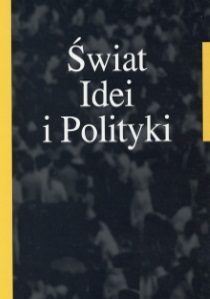Impossible Peace- Kurds in Turkey under AKP rule
DOI:
https://doi.org/10.34767/SIIP.2017.16.11Keywords:
Kurds, Turkey, Kurdish-Turkish conflict, AKP, Peace process.Abstract
The purpose of this article is a presentation of Turkey’s state policy toward the Kurds, the Republic of Turkey’s largest ethnic
minority under AKP rule. The main point of reference is an internal situation in Turkey from the 2000s. The author points out the beginnings of the next stage of Kurdish-Turkish conflict taking into account the results of the presidential and parliamentary elections in 2014 and 2015 and Turkey’s security policy after a failed coup d’état attempt on July 2016. This paper provides a new wave of political repression against Kurds and discusses the Kurdish issue as one of the interests of the main regional powers including Turkey, Iran, Syria and Russian Federation. Finally the article indicates Turkey’s military engagement role in Syrian
Civil War and implicates this engagement on the situation of Kurds in Republic of Turkey and in the region. As a result of the analysis, author pointed out possibility to reinforce of Kurdish nationalism and support of the Kurds for PKK. The effect of the new anti-PKK strategy will probably be increased political polarisation. It is also probable that the PKK will intensify its actions. At the same time, the strategy may lead to the consolidation of the AKP’s and Erdoğan’s electorate, resulting in strengthening the government’s position. In the regional dimension, the strategy requires an increase in Turkish actions on Iraqi and Syrian soil. Taking into account the relationship between PKK and PYD, Turkish military intervention in Syria and involvement in Iraq could
lead to greater consolidation of Kurds in all three states. As an example for international relations, Turkey’s tense relations with Iran, which is interested in preserving its influence over Iraq, and the central government in Bagdad may be further strained.
References
Alevism, Harvard Divinity School. Religious Literacy Project (online).
Ananicz Sz.; Turcja wobec eskalacji konfliktów w Iraku i Syrii; OSW (online).
Bocheńska J., Turecki proces akcesyjny widziany z kurdyjskiej perspektywy, [w:] Turcja i Europa. Wyzwania i szanse, red. A. Szymański, Warszawa 2012.
Dozens of Turkey’ s pro Kurdish BDP members arrested- again, EkurdDaily (online).
Ergin Y., Kurdish conflict takes toll on Turkey’s image, The Washington Times (online).
Guthrie A., Decoding Daesh: Why is the new name for ISIS so hard to understand?, Free Word Centre (online).
Kaczorowski K., Kurdyjskie starania o utrzymanie tożsamości kulturowej – przemiany politycznej reprezentacji Kurdów w Republice Tureckiej, Kraków 2014.
Kaczorowski K., Praktyki językowe Kurdów w Turcji jako element obrony tożsamości kulturowej, [w:] Idee i myśliciele, red. Ł. Trzciński, K. Skowronek, Kraków 2014.
Kongra-Gel Kurdistan Freedom and Democracy Congress (KADEK) Kurdistan Workers’ Party (PKK), Global Security (online).
Kurdish Political Prisoner Leyla Zana Released After a Decade in Jail, Democracy Now (online).
Matusiak M., Wielki Skok. Turcja pod władzą Erdoğana, Warszawa 2015.
Wasilewski K., Nowa strategia Turcji w walce z Partią Pracujących Kurdystanu konsekwencje i szanse realizacji, PISM (online).
Wyniki wyborów parlamentarnych w czerwcu 2015 r., Najwyższa Komisja Wyborcza(online).
Wyniki wyborów parlamentarnych w listopadzie 2015 r., Najwyższa Komisja Wyborcza (online).
Wyniki wyborów prezydenckich w 2014 r., Najwyższa Komisja Wyborcza (online).

